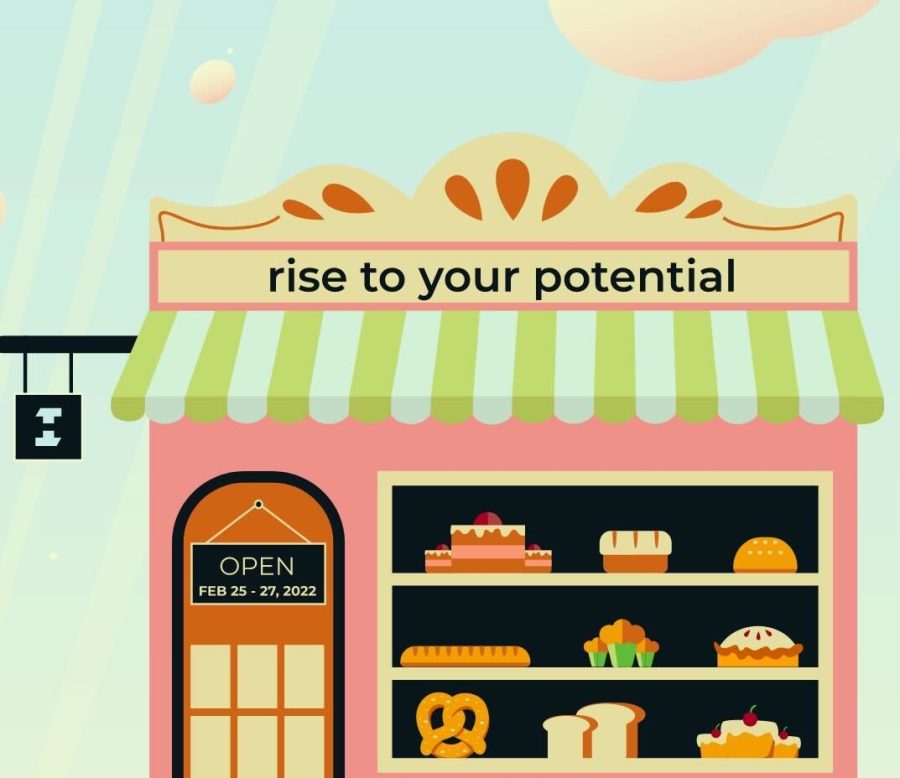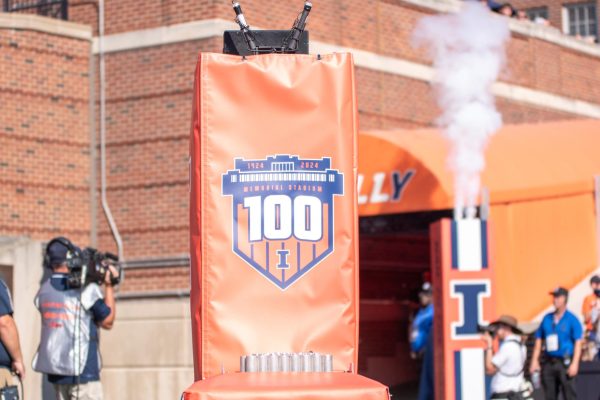HackIllinois creates hackathon experience for beginners, pros alike
February 28, 2022
During the last weekend of February, the Siebel Center for Computer Science room 2405 was abuzz with energy as a team of roughly 30 computer science students and enthusiasts set up headquarters in the classroom. Running an event for over 800 participants from over 20 countries was no easy undertaking, but the HackIllinois leadership team took on the challenge.
HackIllinois is a yearly hackathon, an event in which programmers and others interested in software development intensively collaborate on software projects at the University. Participants in HackIllinois have 36 hours to create projects from scratch with the top ones receiving prizes of up to $1,000.
HackIllinois is usually held in person, with participants cranking out marathon coding sessions in the halls of the Siebel Center. With the surge in omicron COVID-19 cases at the beginning of the year, HackIllinois was held virtually, allowing participants to code from the comfort of their homes. This shift in modality also presented an opportunity for HackIllinois to open to participants unaffiliated with the University.
Raghav Saini, junior in Engineering and HackIllinois co-director, said the purpose of HackIllinois is to make people realize that they don’t need to be coding wizards to put together a great project in 36 hours.
Saini also said one goal of HackIllinois is to change the culture associated with hackathons. For Saini, gone are the days of marathon coding sessions fueled by caffeine and adrenaline, and in their place is a holistic experience open to experts and beginners alike.
Get The Daily Illini in your inbox!
“It’s notorious for being one of these high frenzy sort of events where everyone kind of stays up and works on stuff,” Saini said. “And that’s something that we’re also looking to change, to make sure that people don’t kind of forget to also look out for themselves.”
“The tradition of hackathons is directly tied into the culture of CS itself,” Saini said. “It’s predominantly male, it’s really not that racially diverse, and a lot of times, people who aren’t into the CS major or aren’t already into designing software will feel intimidated.”
Yi Shian Ho, senior in Engineering and HackIllinois co-director alongside Saini, shared enthusiasm for the event’s embrace of community and newcomers to the hackathon sphere.
“I think the biggest draw is the community itself,” Ho said. “Having people who are new to coding for the first time, they come here, they learn new skills, they network with new people they have never met before with industry experience.”
In addition to developing projects, HackIllinois participants were given the opportunity to attend workshops hosted by event sponsors to learn new skills and participate in mini-events designed to give participants a break from long stretches of coding. Mini-events included a “League of Legends” tournament, a speed typing competition and competitive GeoGuesser — a web game where players use Google street view images to guess where in the world they are from.
At the end of the 36 hours, participants entered their projects into one of five categories: data science, student development pack utilization, community and sustainability, general and beginner. The winning project from each category received a prize of $800 with select runner-ups receiving prizes as well.
HackIllinois teamed up with sponsors from companies such as John Deere, Caterpillar, Meta and Bloomberg to provide prizes for their competitions’ winners.
Jonathan Sneh, freshman in Engineering, took part in HackIllinois for the first time this past weekend. Sneh said one of the most valuable parts of taking part in a hackathon is implementing skills from classes into tangible projects without the pressure of a grade.
“Hackathons are a great way to start working on a project because it’s fun,” Sneh said. “It’s an educational experience. In CS, you learn a lot of theory, a lot of math behind things, but it’s not often you get to chase after your own opportunities.”







